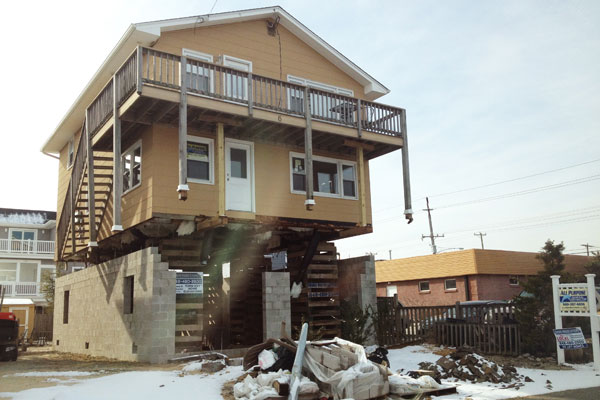New Jersey Future Blog
New Sewer Rules, New Hope for Smart Growth?
May 2nd, 2007 by Chris Sturm
- NJ Department of Environmental Protection Commissioner Lisa Jackson celebrated Earth Day by announcing a new regulatory regime to govern the extension of wastewater infrastructure in New Jersey. This huge new rule—all 464 pages of it—will be published in the NJ Register on May 23rd.
- This rewrite is past due. Originally adopted in 1989 in response to state and federal legislation to protect water quality, the rules have failed to curb sprawl, one of the leading culprits in water quality degradation. Two previous attempts to overhaul the rules were stalled by controversy.
- Although the current regulations require that every municipality be covered by an up-to-date Wastewater Management Plan (WMP), the system lacks an enforcement mechanism. This is evidenced by the fact that half of all municipalities in the state are covered by WMP plans that are out of date, while one-quarter of municipalities are not covered by any WMP plan at all.
- Today’s regulations have also created an incentive to build low-density residential sprawl because small- to medium-sized developments (which generally have less than 60 homes*) on septic systems do not require NJDEP review. The alternatives—such as building a traditional hamlet or village, or extending sewer service adjacent to an existing town—do require applicants to enter the expensive, lengthy, and unpredictable NJDEP approval process.
- The rules regulate residential developments that generate more than 20,000 gallons of wastewater per day. This translates roughly to 60 homes.
Reining in Sprawl
One of the first rules of land use is that development follows infrastructure. Where sewers are located largely dictates where development goes. Similarly, where and how septic systems are regulated governs how larger lot subdivisions are designed. The current regulatory system has allowed sprawl to continue unabated and has made it difficult to pursue the smart center-based development advocated for in the State Development and Redevelopment Plan.
NJDEP’s new wastewater rules must reflect these values because once adopted, they will have lasting and important consequence to the state. New Jersey Future hopes to see the following items included in the new rule:
1. Counties should play the lead role in writing wastewater plans, so NJDEP has 21 entities to deal with, rather than today’s 161 WMP agencies.
2. NJDEP should approve those plans only in municipalities that have adopted a zoning ordinance that limits development to levels that meet the constraints outlined in the rule.
3. NJDEP must support this planning effort with clear, science-based guidelines, ample in-house staff, and technical and financial assistance to counties.
4. Center-based development should be encouraged in rural areas by allowing small treatment plants when coupled with large open space set-asides.
5. The state’s wastewater planning must be closely coordinated with the State Plan so that over time, sewer service areas are limited to State Plan growth areas (planning areas 1, 2 and centers). This will require adjustments to both sewer service areas and the State Plan map.
For more information, click here.
If you have any questions about this issue of Future Facts, please contact Chris Sturm, Senior Director of State Policy.
















